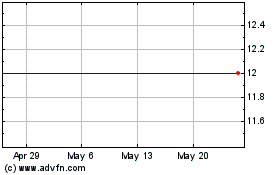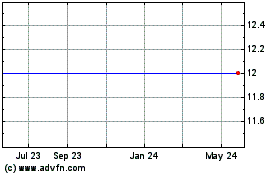UPDATE: Teva 4Q Net Drops 34% On Acquisition Costs; Sales Up 28%
February 15 2012 - 10:41AM
Dow Jones News
Teva Pharmaceutical Industries Ltd.'s (TEVA) fourth-quarter
profit declined 34%, as higher acquisition-related costs more than
offset a revenue increase fueled by last year's purchase of
Cephalon Inc.
The world's biggest manufacturer of generic drugs increased its
quarterly dividend by 25%, to an equivalent of 26.8 cents per share
at Tuesday's exchange rates. This continues Teva's stepped-up
efforts to return cash to shareholders, including a recently
authorized $3 billion share repurchase program.
The Israeli-based company, which is undergoing a leadership
transition, said 2011 was a challenging year in which its U.S.
generics business came under pressure. But Teva said it ended the
year on the upswing, and the company recently predicted its
earnings and sales would rise in 2012, aided by the introduction of
new generic drugs that could help its U.S. business recover.
Teva, which has diversified into brand-name and over-the-counter
drugs, expects sales growth for its U.S. generics business to
outpace market growth in 2012, Chief Executive Shlomo Yanai said on
a conference call with analysts. Yanai plans to retire in May and
will be replaced by former Bristol-Myers Squibb Co. (BMY) executive
Jeremy Levin.
J.P. Morgan analyst Chris Schott said in a research note that
Teva's fourth-quarter results showed "a clear uptick on performance
after a difficult year overall."
Teva shares rose 3.1% to $44.87.
For the fourth quarter, Teva reported a profit of $506 million,
or 57 cents a share, compared with $771 million, or 85 cents a
share, a year earlier.
The latest quarter included costs related to acquisitions,
restructuring, legal settlements and other items. Excluding these
items, earnings would have been $1.59 a share, a penny ahead of the
mean estimate of analysts surveyed by Thomson Reuters.
Fourth-quarter sales rose 28% to $5.7 billion, helped by last
year's $6.8 billion acquisition of Cephalon, which expanded Teva's
branded drug business.
U.S. revenue rose 32% to $3 billion, while European revenue rose
13% to $1.5 billion. Revenue in the rest of the world rose 44% to
$1.1 billion.
Generic product revenue rose 12% to $3 billion. U.S. generic
revenue declined 5%. Teva's U.S. generics business suffered last
year because it didn't have as many big product launches as in
2010.
Branded products were up 68% to $2.3 billion. Teva's biggest
drug, the Copaxone treatment for multiple sclerosis, had sales of
$927 million, up 11%.
Teva and other generic-drug makers are capitalizing on a wave of
patent expirations for top-selling drugs. Eli Lilly & Co.'s
(LLY) Zyprexa antipsychotic and Pfizer Inc.'s (PFE) Lipitor
cholesterol-lowering drug recently lost U.S. market exclusivity,
and Merck & Co.'s (MRK) Singulair allergy and asthma drug will
lose protection later this year.
Teva expects one of its biggest generic-drug launches in 2012 to
be a copycat version of Forest Laboratories Inc.'s (FRX) Lexapro
antidepressant.
Teva reaffirmed its forecast of 2012 earnings of $5.48 to $5.68
a share, excluding certain items such as legal settlements.
-By Peter Loftus, Dow Jones Newswires; +1-215-982-5581;
peter.loftus@dowjones.com
Forest Road Acquisition (NYSE:FRX)
Historical Stock Chart
From Jun 2024 to Jul 2024

Forest Road Acquisition (NYSE:FRX)
Historical Stock Chart
From Jul 2023 to Jul 2024
